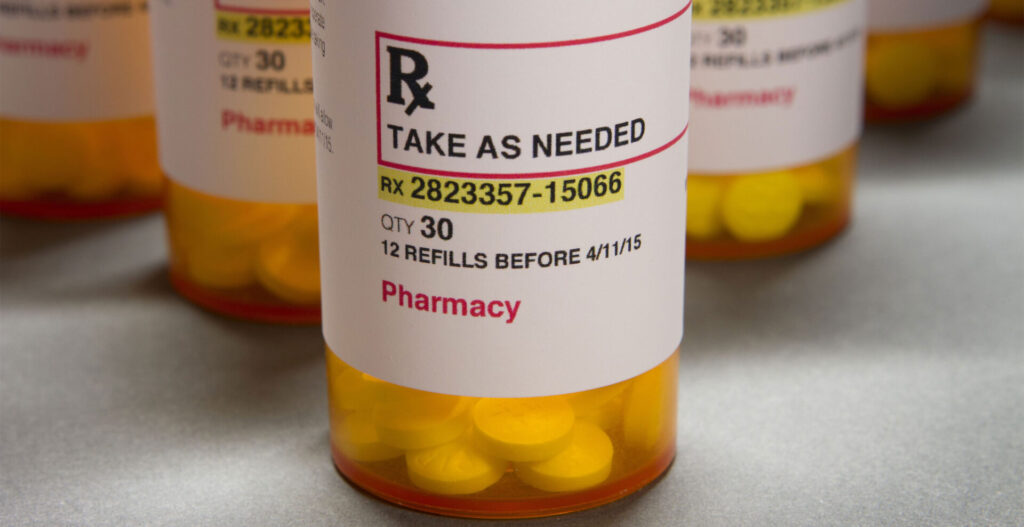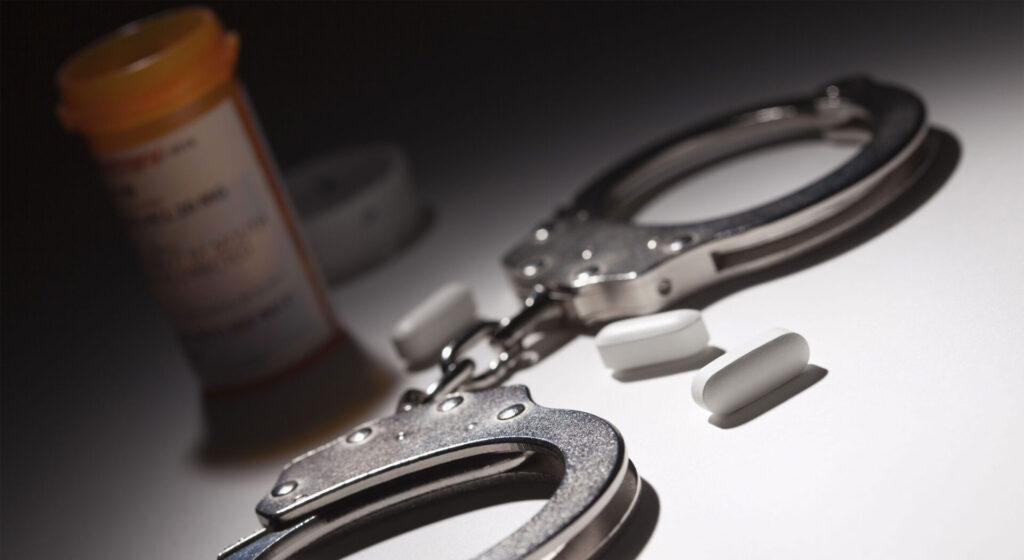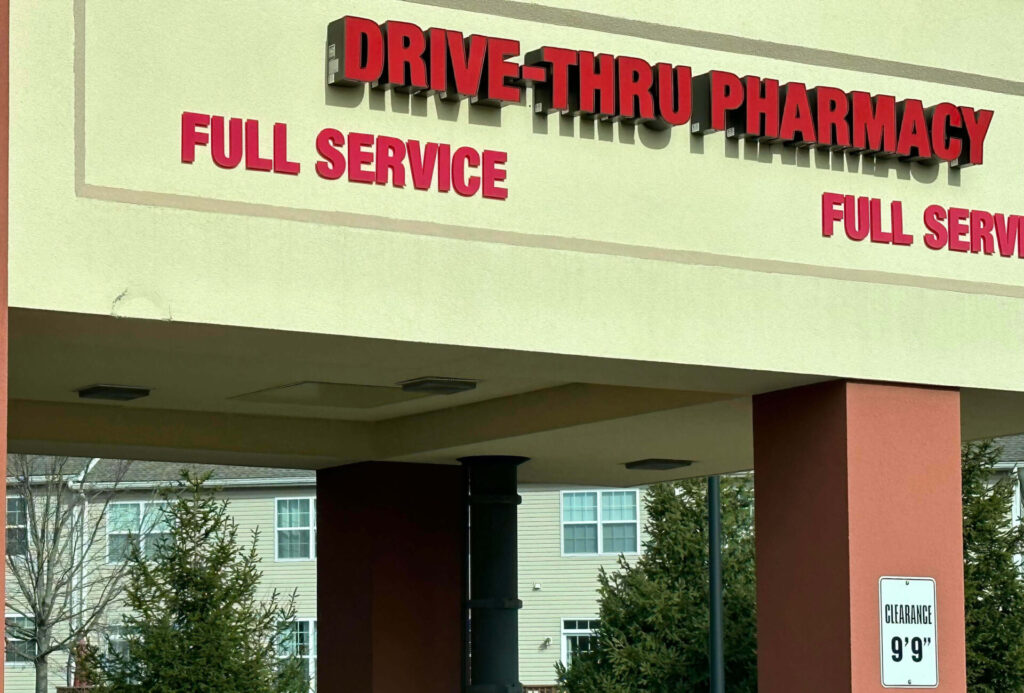
According to the National Center for Health Statistics, overdose deaths from prescription opioids like oxycodone, hydrocodone and methadone have more than quadrupled since 1999. As a consequence, federal, state and local prosecutors have devoted significant resources into investigating, arresting and prosecuting those who illegally possess, use, deliver or distribute prescription drugs.
The Consequences of a Prescription Drug Crime Conviction

Individuals charged with prescription drug offenses often face long prison sentences, excessive fines and court costs, loss of employment and suspension of their driving privileges. It is important to have a knowledgeable criminal defense attorney on your side if you are charged with a prescription drug crime.
Bucks County Prescription Drug Attorney
I have over a decade experience of providing skilled and aggressive representation to individuals facing prescription drug charges in Bucks County, Montgomery County and the surrounding counties. Contact me at (215) 752-5282 for a free initial consultation or fill out the confidential contact form for an immediate response. Appointments are available after business hours and on weekends.
Prescription Opioid Medication Abuse
Prescription opioid medications are often prescribed by doctors to treat moderate to severe pain after injury or surgery. The most commonly prescribed opioid medications are hydrocodone (Vicodin) and oxycodone (Oxycontin, Percocet). Long-term use of opioid prescription medications will often lead to drug dependence and addiction.
According to the United States Food and Drug Administration, 91 people die from an opioid overdose in the United States every day. State records indicate that Bucks County had 209 fatal opioid overdose deaths in 2018. Unfortunately, individuals who are addicted to prescription opioids will often resort to desperate measures when their drug supply runs out.
Commonly Abused Opioid Drugs in Pennsylvania
- Oxycodone (OxyContin, Percocet, Percodan)
- Hydrocodone (Vicodin)
- Fentanyl (Duragesic, Subsys, Abstral)
- Oxymorphone (Dilaudid)
- Meperidine (Demerol)
- Oxymorphone (Darvon)
Commonly Abused Central Nervous System Depressants
- Alprazolam (Xanax)
- Clonazepam (Klonopin)
- Diazepam (Valium)
- Lorazepam (Ativan)
- Zolpidem Tartrate (Ambien)
Commonly Abused Stimulants
- Dextroamphetamine (Dexedrine)
- Methylphenidate (Ritalin, Conserta)
- Amphetamines (Adderall)
Prescription Drug Crimes in Pennsylvania
Drug possession charges are among the most common drug-related offenses prosecuted in Pennsylvania and can involve substances including heroin, cocaine and marijuana as well as prescription medications.
Furthermore, many prosecutors believe that individuals who have developed dependence to prescription drugs will often transition to the use of more dangerous street drugs such as heroin and cocaine.
Prescription Drug Treatment Programs
In many cases, successful completion of a pre-trial drug treatment program can contribute to a favorable outcome in a prescription drug possession case. I am extremely knowledgeable in the specialized drug treatment programs in Bucks County, Montgomery County and the surrounding counties. If necessary, I can assist you in finding an appropriate facility equipped to conduct a drug-addiction assessment as well as any recommended substance abuse treatment.
Prescription Drug Possession Defined
The law pertaining to the illegal possession of a prescription drug is found under 35 P.S. § 780-113(a)(16) of the Pennsylvania Drug Act. Under the law, the unlawful possession of a controlled substance is defined as “knowingly or intentionally possessing a controlled substance by a person not registered under this act, or a practitioner not registered or licensed by the appropriate state board, unless the substance was obtained directly from, or pursuant to, a valid prescription order or order of a practitioner or except as otherwise authorized under this act.”
How a Prosecutor Proves a Prescription Drug Case
Individuals who possess prescription pills without a valid prescription can be charged with illegal possession of a controlled substance in Pennsylvania. Prosecutors generally attempt to establish the illegal possession of prescription drugs under one of 3 legal theories:
- Actual Possession: Under this legal theory, the prosecutor alleges that you were in physical custody of the prescription pills, meaning the pills were found on your person or in your pocket. This includes purses, backpacks and even shoes. Under the legal concept of “joint possession,” it is possible for 2 or more people to share actual possession of prescription pills.
- Constructive Possession: Under this legal theory, the prosecutor alleges that prescription pills were found somewhere to which you have access, such as your house, car or property. A prosecutor would need to prove that you had knowledge of the prescription medication as well as the ability to maintain dominion or control over it.
- Joint Constructive Possession: Under this legal theory, the prosecutor alleges that more than 1 person constructively possessed the illegal prescription medication. “Joint constructive possession” cases often arise in situations in which illegal prescription drugs are found in a vehicle or common area of a residence. Under the legal concept of “joint possession,” it is possible for 2 or more people to constructively possess illegal prescription medication.
Difficulties in Proving Constructive Possession of Prescription Drugs
Constructive possession of prescription pills is much more difficult for a prosecutor to prove than actual possession. A prosecutor will generally need additional evidence beyond an individual’s mere proximity to the suspected illegal prescription medication to establish proof of a crime in a constructive possession case.
That additional proof may come from DNA evidence, fingerprint evidence or from incriminating statements made by the suspect indicating ownership of the prescription pills.
Penalties for the Illegal Possession of Prescription Medication
1st Offense
- Ungraded misdemeanor
- Up to 1 year in jail
- Up to $5,000 fine
2nd and Subsequent Offenses
- Ungraded misdemeanor
- Up to 3 years in jail
- Up to $25,000 fine
Pre-Trial Diversion Programs for Prescription Drug Cases
In certain situations, the best course of action to protect the future of an individual charged with the illegal possession of prescription medication is to apply for admission into a pre-trial diversion program. The District Attorneys in Bucks County, Montgomery County and the surrounding counties offer these programs to 1st time offenders facing prescription drug charges graded as a misdemeanor offense.
Benefits of the Pre-Trial Diversion Programs
The pre-trial diversionary programs offered in Pennsylvania for prescription drug offenses include the Bucks County District Court Diversion Program, Accelerated Rehabilitative Disposition (ARD), Section 17 and Section 18 under the Pennsylvania Controlled Substances, Drugs, Device and Cosmetics Act. Successful completion of the diversionary program will result in the dismissal of the prescription drug charges.
Bucks County District Court Diversionary Program for Prescription Drug Possession
The Bucks County Magisterial District Courts offer a pre-trial diversion program to individuals charged with possession of marijuana, possession of drug paraphernalia and the possession of a controlled substance other than marijuana.
Individuals can request a referral for admission into the program from the magisterial district judge at the time of the preliminary hearing or at an earlier date. Candidates for the program must meet the following qualifications:
- The applicant must be a resident of Bucks County; and
- The District Attorney must approve the applicant’s admission; and
- The applicant must sign a waiver of the preliminary hearing; and
- The applicant must sign a waiver of their speedy trial rights; and
- The applicant must sign waivers related to treatment programs; and
- The applicant must comply with all treatment recommendations; and
- The applicant must report to court as directed; and
- The applicant must pay the costs of the program; and
- The applicant must have no prior criminal convictions if the case involves a controlled substance other than marijuana
Successful completion of the treatment program and supervisory period will result in the dismissal of the prescription drug possession charges at the district court level. Individuals who complete all of the conditions of the program are eligible for expungement of the records of their case. I can determine if you are eligible for the district court diversionary program for your prescription drug possession charges.
ARD for Prescription Drug Offenses
Individuals charged with prescription drug offenses in the state of Pennsylvania may be eligible for the ARD program, which can enable qualified candidates to avoid jail time as well as most other criminal penalties resulting from a conviction for the offense. The ARD program is intended to divert 1st time offenders from the criminal justice system. If the District Attorney approves your acceptance into the ARD program, your prescription drug charges will be “suspended.” During the time of the suspension of your charges, there are court-ordered conditions which must be strictly followed, including:
- Completion of community service
- Drug treatment when recommended after assessment
- Remain arrest-free during the program probationary period
- Payment of court costs
- Completion of a period of probationary supervision
Expungement for ARD Prescription Drug Charges
Once your ARD program conditions have been completed, your original charges will be dismissed. Individuals who successfully complete the ARD program are eligible to file a Petition for Pennsylvania criminal record expungement. Most county courts require a 30-day waiting period from the ARD completion date before the expungement petition may be filed. If the expungement petition is granted, your arrest record and proof of participation in the ARD program would not appear on a criminal background check. I can assist you with the ARD application, admission and expungement process.
Section 17 for Prescription Drug Offenses
First-time offenders charged with prescription drug possession may be eligible for a pre-trial diversionary program under 35 P.S. § 780-117 (also known as Section 17) of the Pennsylvania Controlled Substances, Drugs, Device and Cosmetic Act. Admission into the Section 17 program, also referred to as probation without verdict, requires written proof of drug dependency by a physician or psychologist.
Benefits of the Section 17 Program
An individual entering the Section 17 program must enter a guilty plea or plea of no contest to the prescription drug offense and agree to comply with the conditions of the special probation including drug treatment if required by the court. Successful completion of the terms and conditions of the Section 17 probation will result in the dismissal of the prescription drug charges by the court.
Individuals who successfully complete the Section 17 program are eligible to petition the court for the expungement of the records of their case. I can determine if you qualify for the Section 17 program for your prescription drug possession case.
ARD versus Section 17
The Section 17 program is a more desirable alternative than the ARD program for 1st time prescription drug possession offenders who do not qualify for the district court diversionary drug programs.
Most prosecutors will permit qualified individuals to participate in the ARD program even if they have previously been granted admission into the Section 17 program. Unfortunately, many prosecutors will not offer Section 17 admission to individuals who have previously been admitted into the ARD program.
Section 18
First-time offenders charged with prescription drug possession may be eligible for a pre-trial diversionary program under 35 P.S. § 118 (also known as Section 18). The applicant’s charges must be related to drug activity. Under Section 18, a court-appointed doctor trained in drug abuse and drug dependency must complete an examination of a candidate as well as a review of a candidate’s criminal record, if applicable.
Section 18 Application Process
Once the examination is completed, the doctor must advise the court, district attorney and prospective Section 18 candidate whether a criminal prosecution should be withheld in favor of mental health, drug treatment or both. Even if the doctor advises against prosecution, the district attorney must agree to follow the doctor’s recommendation in order for a candidate to be admitted into the Section 18 program.
Benefits of the Section 18 Program
Successful completion of all of the conditions of the program will result in the dismissal of the criminal charges. Individuals who complete the Section 18 program are eligible to petition the court for expungement of the records of their case. I can determine if you are a candidate for the Section 18 program for your prescription drug possession case.
Acquisition of a Controlled Substance by Fraud
Under P.S. § 780-113(a)(12), drug fraud is defined as “the acquisition or obtaining of possession of a controlled substance by misrepresentation, fraud, forgery, deception or subterfuge.” Cases involving the acquisition of a controlled substance by fraud typically involve the use of stolen, altered, forged or counterfeit prescriptions.
Other common methods of committing prescription fraud include situations in which a prescription for a controlled substance is presented at or called into a pharmacy by someone posing as a physician or physician’s assistant.
Related Charges for Prescription Fraud
It is common for prosecutors to file additional charges of delivery of a controlled substance, forgery and criminal conspiracy in cases involving the acquisition of a controlled substance by fraud. Individuals involved in large-scale prescription fraud crimes are likely to face prosecution in federal court for drug trafficking and other related federal offenses.
Penalties for Acquisition of a Controlled Substance by Fraud in Pennsylvania
- The penalties for acquisition of a controlled substance by fraud charges will depend in part on your prior criminal history and on the type and quantity of drug involved.
- For a controlled substance or counterfeit substance classified in Schedule I or II, which is a narcotic drug (e.g., Oxycontin, Percocet, Vicodin or Fentanyl), it is classified as a felony and is punishable by up to 15 years in prison and up to a $250,000 fine.
- For phencyclidines (PCP), methamphetamines, cocaine and its derivatives or marihuana in excess of 1,000 pounds, it is classified as a felony and punishable by up to 10 years in prison and up to a $100,000 fine.
- For any other controlled substance or counterfeit substance in Schedule I, II or III, it is classified as a felony and is punishable by up to 5 years in prison and up to a $15,000 fine.
- For any controlled substance or counterfeit substance classified in Schedule IV (i.e., Valium, Xanax or Klonopin), it is classified as a felony and is punishable by up to 3 years in prison and up to a $1,000 fine.
- For a controlled substance or counterfeit substance classified in Schedule V (i.e., cough syrup with codeine), it is classified as a misdemeanor and is punishable by up to 1 year in prison and up to a $1,000 fine
Prescription Drug Defense
I will thoroughly and comprehensively examine the facts and circumstances of your case to determine any available defense against the charges. My review of the case will include an analysis of whether the police violated your constitutional rights while conducting a traffic stop, applying for a search warrant, executing a search warrant or during the search and seizure of evidence. I will also examine whether the police violated your Miranda rights during questioning.
Motion to Suppress Illegally Obtained Evidence
Almost every prescription drug crime case involves a search and seizure of evidence by the police. The federal and state constitutions place strict limitations on how the police may search your person and your property.
Therefore, it is important to analyze each step the police took both before and after the search and seizure of prescription drugs took place.
A Motion to Suppress evidence can be filed in cases where it is established that the police have violated your constitutional rights. The suppression of evidence in a prescription drug case will often lead to a withdrawal of the charges by the prosecutor or the dismissal of the charges by the court.
Alternatives to Trial in a Prescription Drug Case
In certain cases, I have been able to negotiate with the police and prosecutors to have the charges reduced to lesser offenses and penalties by demonstrating weaknesses in the prosecution’s case or by providing proof of successful drug treatment and rehabilitation of the accused prior to trial.
In some cases, the most effective resolution of the case is a negotiated plea bargain. I can determine the most effective legal strategy based on the evidence in your case. My primary goals are to protect your rights and preserve your freedom.
Start with a Strong Defense
If you have been charged with acquiring a controlled substance by fraud or other prescription-related drug charges in Bucks County, Montgomery County or the surrounding counties, it is critical that you act quickly to protect your rights and build the strongest possible defense against the charges.
Phone lines are open 24 hours a day at (215) 752-5282. Contact me for a free initial consultation or fill out the confidential contact form for an immediate response.





